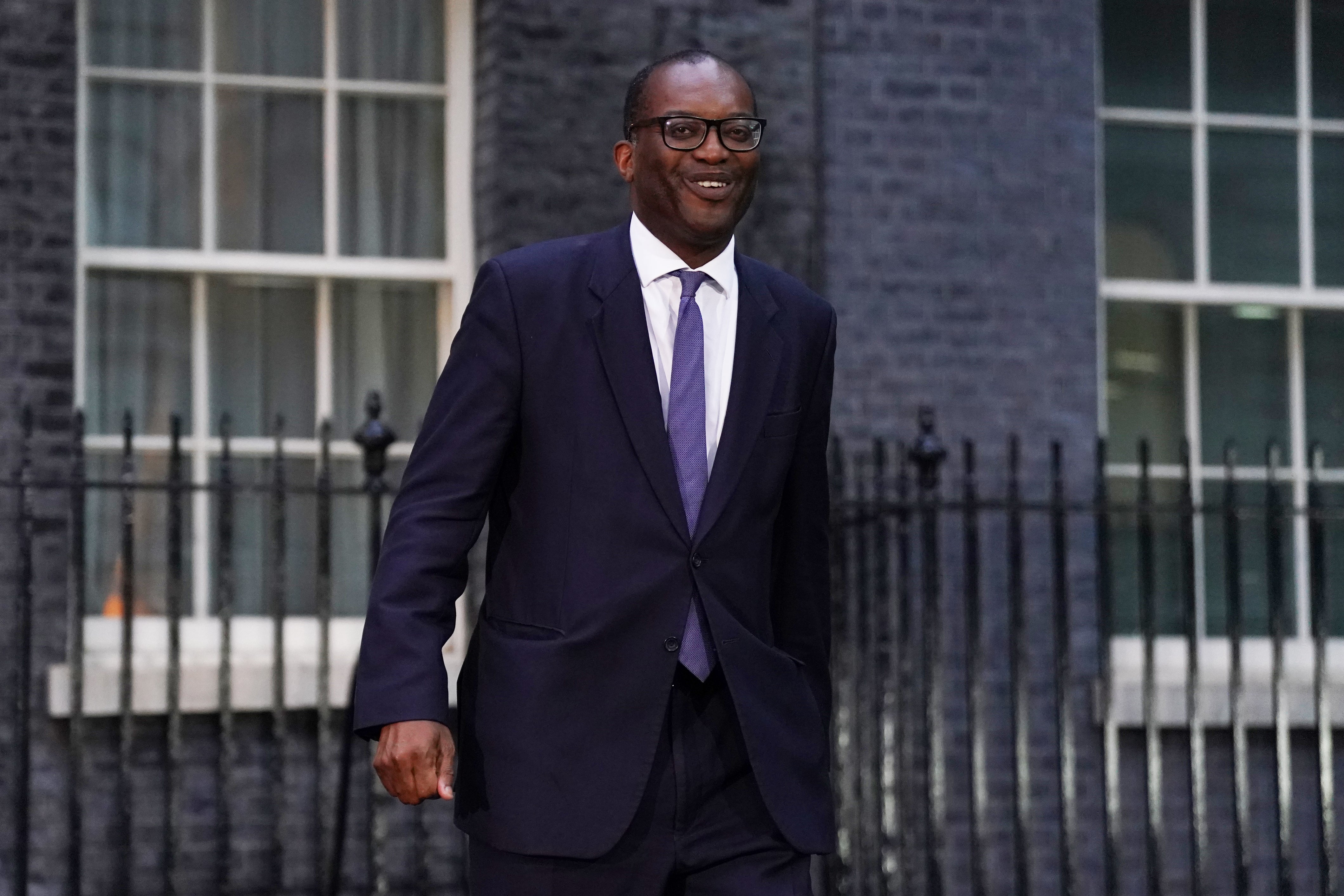Chancellor warns banks of higher government borrowing to ease energy crisis
Chancellor Kwasi Kwarteng delivered the message after an hour-long meeting with City leaders at the Treasury on Wednesday morning.

Your support helps us to tell the story
From reproductive rights to climate change to Big Tech, The Independent is on the ground when the story is developing. Whether it's investigating the financials of Elon Musk's pro-Trump PAC or producing our latest documentary, 'The A Word', which shines a light on the American women fighting for reproductive rights, we know how important it is to parse out the facts from the messaging.
At such a critical moment in US history, we need reporters on the ground. Your donation allows us to keep sending journalists to speak to both sides of the story.
The Independent is trusted by Americans across the entire political spectrum. And unlike many other quality news outlets, we choose not to lock Americans out of our reporting and analysis with paywalls. We believe quality journalism should be available to everyone, paid for by those who can afford it.
Your support makes all the difference.The new Chancellor of the Exchequer has said that the Government will take “decisive action” to help British people through the energy crisis, in his first meeting with the country’s top banks and insurers.
Chancellor Kwasi Kwarteng delivered the message after an hour-long meeting with City leaders at the Treasury on Wednesday morning.
The chief executives of banking giants Barclays, NatWest, Lloyds Banking Group and HSBC were all in attendance, along with leaders at insurers Aviva and Legal and General, and the top investment banks.
The Prime Minister and I are committed to taking decisive action to help the British people now, while pursuing an unashamedly pro-growth agenda
Mr Kwarteng cautioned the leaders that the Government will have to borrow more money in the short-term to help households and businesses through the energy and cost-of-living crisis.
He said: “We face extraordinary economic challenges in the coming weeks and months and I know that families and businesses across the UK are worried.
“The Prime Minister and I are committed to taking decisive action to help the British people now, while pursuing an unashamedly pro-growth agenda.”
As part of the pro-growth strategy outlined, the Chancellor committed to ensuring that the economy grows faster than the nation’s debts.
This would involve a “radical” supply-side agenda, meaning that businesses could see burdensome regulation and taxes reduced in the future.
Changing the conditions for businesses will in turn create more jobs, wealth and drive economic growth, he said.
“We need to be decisive and do things differently. That means relentlessly focusing on how we unlock business investment and grow the size of the British economy, rather than how we redistribute what is left”, Mr Kwarteng added.
The City regulator has told Britain’s biggest banks to outline their plans for supporting customers through the cost-of-living crisis, according to reports.
It is likely that the Chancellor will have stressed the important role of banks and insurers during his meeting with the leaders on Wednesday.
The chief executive of insurer Legal and General, Nigel Wilson, spoke positively about the meeting with Mr Kwarteng, which he told the PA news agency was “terrific”.
Meanwhile, the new Prime Minister, Liz Truss, is expected to announce a plan on Thursday to freeze energy bills in England, Scotland and Wales at around £2,500.
The policy, which could cost as much as £150 billion according to the The Times, would be funded by borrowing and general taxation.